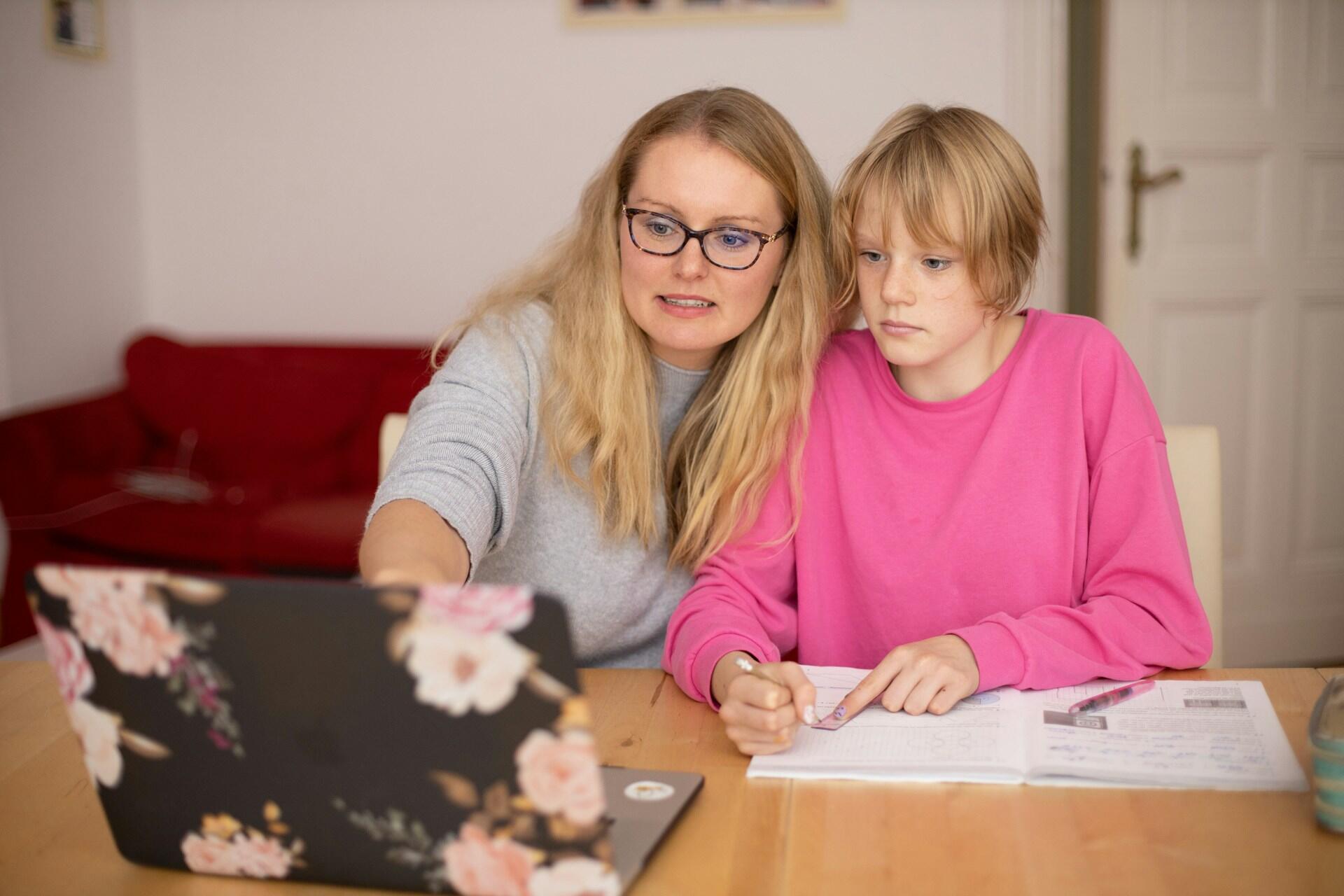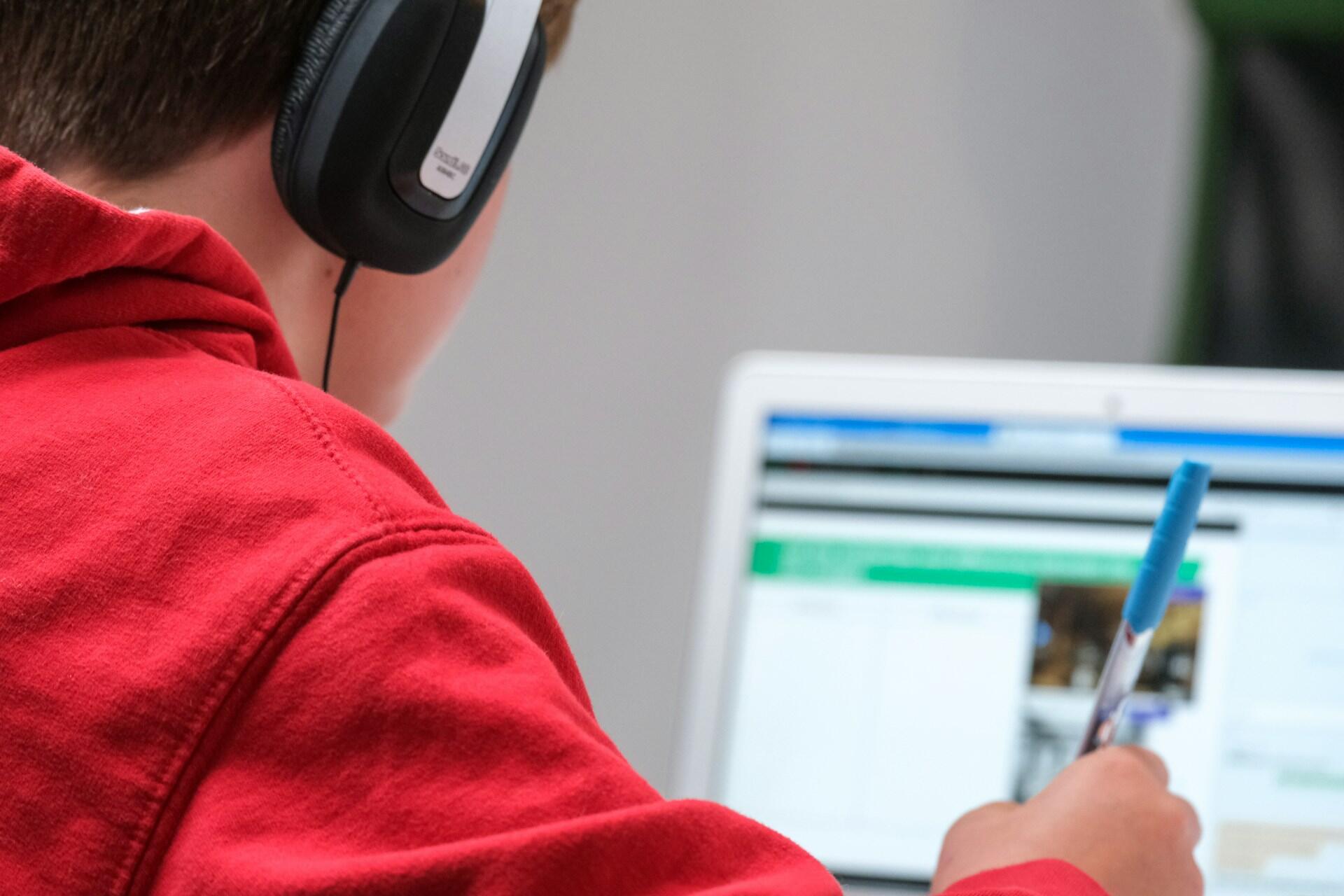Anyone with any experience in teaching will know that there isn't ever a one-size-fits-all solution for every student. After all, every student is different. Since even the best teachers may struggle to teach every student as effectively as possible, some parents are looking for other educational options, like private schools or homeschooling.

Legal Requirements for Homeschooling in Ireland Explained
Every person in Ireland has a constitutional right to homeschool their child. After all, the Irish Constitution states that parents and the family are a child's primary educators and even outlines their duties and responsibilities as parents.
Whether you want to call it homeschooling (sometimes spelt home schooling) or home education, parents in Ireland do not require a formal teaching education. Parents in Ireland do not need to follow the national curriculum to homeschool their children. However, there are minimum requirements for the education that the child receives.
Homeschooling in Ireland is protected under Article 42 of the Irish Constitution, which recognises parents as the primary educators of their children. This constitutional right allows families to provide education at home rather than through recognised schools, provided that a minimum standard of education is met.
Unlike many other countries, Ireland does not require parents to hold teaching qualifications or to follow the national curriculum. Instead, the focus is on outcomes. Parents must show that their child is receiving an education appropriate to their age, ability, and needs, covering moral, intellectual, social, and personal development.
This legal framework gives families a high degree of educational freedom, while still ensuring that children’s rights to education are protected through oversight by the state. while ensuring that children’s rights to education are protected through state oversight
In addition to providing this "minimum education", parents must register with TUSLA's Alternative Education Assessment and Registration Service (AEARS). The Department of Education and Science has a guide on what the "minimum education" should be. This guide, "Guidelines on the Assessment of Education in Places Other Than Recognised Schools," is a must-read for parents in Ireland considering homeschooling their children.
children were registered for home education in Ireland by mid-2025, up from around 1,500 in 2020.
This is primarily to ensure that your child receives an education appropriate to them and that your homeschooling supports your child's development rather than hinders it. This also includes requirements like contributing to your child's moral development, providing opportunities to develop their intellectual capacities, and offering a balanced range of learning experiences.
children were registered for home education, representing an 18% increase from July 2023 figures.

As for registering, an assessor will check the details of the education you plan to offer your child, the materials you'll use, and how long you plan to teach your child. If this goes well, your child will be registered. Suppose the preliminary assessment could have gone better, or more information was needed. In that case, a more in-depth, comprehensive assessment would be conducted. The assessment typically considers:
Homeschooling in Ireland offers unique benefits. However, if your child wants to attend university or any third-level education, there are some downsides. If they haven't completed their Leaving Certificate, university entry is far more complicated or impossible. Homeschooled children can still take state exams, though.
When parents register for homeschooling through TUSLA’s Alternative Education Assessment and Registration Service (AEARS), the assessment process is designed to be supportive rather than exam-based. Assessors are not evaluating parents as teachers, but instead reviewing whether a suitable educational plan is in place.
The Benefits of Homeschooling in Ireland
Now that you know how to educate your child at home, let's examine the benefits of homeschooling. After all, you want what's best for your child, and you may believe homeschooling will provide them with the proper education. Homeschooling allows parents to visit the library more frequently, visit museums, visit parks and outdoor spaces, and even exercise in local parks.
One key advantage of homeschooling is its flexibility. Despite the name, homeschooling doesn't have to take place at home. Parents can 'homeschool' their children in any location that they find suitable according to their lesson plan or curriculum. Suppose there's an opportunity for parents to travel with their children to an interesting destination while still providing the minimum required education. In that case, they can offer more engaging lessons and trips worldwide.
Homeschooling is often a popular choice for parents worldwide who regularly travel for work or other reasons and cannot keep their children in school. Homeschooling allows parents to ensure that every session is tailored to their child and their interests. This doesn't mean they can ignore any subject their child doesn't like. Still, they can integrate their hobbies and interests into the lessons, making them more effective.
of school-age children in Ireland are homeschooled.

Top Benefits of Homeschooling
- Personalise the curriculum: Parents who homeschool their children can tailor the curriculum to their child's needs, prioritising aspects of education they feel are relevant.
- Integrate learning into everything: With homeschooling, you can make every activity a learning opportunity for your child. Whether in a lesson at home, outdoors on a trip, or even running errands, you can teach your child wherever you are.
- Teach relevant skills: Parents can teach their children valuable everyday skills that are often overlooked in more academically focused state education. Rather than teaching them to pass an exam, you can teach them how to do things.
- Personalise learning to your child: This is one of the most significant advantages of homeschooling. Parents can ensure that every lesson is tailored to their child, what they want to do, what they want to learn, and what they like. This personalised approach can ensure your child's needs are being met.
- Avoid illness: For any child with health issues, illness can be worrying or even dangerous. Homeschooled children won't risk catching certain diseases because they have less indoor interaction with children in traditional schools.
- Inspire confidence and independence in their learning: Homeschooling allows you to focus on your child's education and help them become confident, independent learners, which isn't always achieved in traditional schools.
- Take learning outside: For outdoorsy children, sitting in a classroom all day can be a stifling experience that ultimately hinders their intellectual development. Children who like to be outside can have lessons wherever their parents are willing to take them.
- Avoid bullying and peer pressure: Certain schools may have problems with bullying or peer pressure, and homeschooling can mitigate this risk by taking children out of these problematic environments. This isn't to say that homeschooled children shouldn't interact with their peers, but as a parent, you'll have much more control over who's in their peer group. This can provide parents with a sense of relief and security.

Creating a Homeschool Curriculum
While parents of homeschooled children must provide a minimum education, it's clear that most want to offer their children a better education than they'd get in school and don't want to teach them only the minimum.
Creating a homeschooling course or curriculum is a crucial step for parents. While this doesn't have to match the curriculum they'd be taught in traditional schools, it might be worth looking at different curricula to see what your child would be taught if they weren't homeschooled. This can help you structure their lessons or give you ideas for everything they should be learning in each subject or even which subjects they should be taught.

The Pros and Cons of Using a Homeschool Curriculum
A curriculum can help you structure what you teach your child during homeschooling, but it's not always a good idea. Think about your child's learning outcomes for the school year and everything they'll need to learn, then allocate them across a specific period. Set monthly learning goals and break lessons and skills into more manageable chunks.
A curriculum has the advantage of providing a framework from which you can work. It can also help you hold yourself and your child accountable for their learning objectives and monitor whether or not they're being achieved.
Since it's just you and your child, you can adapt a homeschooling curriculum more regularly and easily if it's not working. The downside of creating your own curriculum is that you have to invest time and effort into it. You can always buy curriculum kits or materials. Still, these are costly and are unlikely to be tailored to your child.
Online tutoring differs from homeschooling, but it can still offer a way to deliver or even create a curriculum. Specialists in a particular subject will better understand what to teach your child in that topic. However, this requires planning, interviewing, and hiring a tutor for each subject, which can quickly become quite expensive.
Online courses offer a cheaper option to homeschoolers and give the structure of a class in almost any subject or skill you can think of. If there's a particular skill or subject you're unable to teach them, you could enrol them in an online course.
Parents homeschooling in Ireland are not required to follow a single approved curriculum, but they are expected to use appropriate educational resources that support their child’s development. These resources can include books, online platforms, libraries, educational apps, museums, community groups, and subject-specific materials.
Public libraries across Ireland are a key support for homeschoolers, offering access to books, study spaces, workshops, and learning programmes. Many families also combine home education with online courses, tutoring support, and local homeschooling groups to cover subjects where specialist knowledge is helpful.
Using a mix of structured and flexible homeschooling resources helps parents demonstrate that learning is broad, balanced, and progressive, which aligns well with TUSLA assessment expectations.
| PROS | CONS | |
|---|---|---|
| Make your own | Personalised to your child's interests, strengths and skills; very flexible | Needs planning and time |
| Curriculum kits | You can buy a program for an entire year | Often expensive; not personal to your child |
| Tutors – Live or online | Allows your child to interact with different people with different expertise | May take time to find the right tutor willing to commit to a school term/year; multiple tutors may get hard to manage and expensive |
| Online Courses | Give you access to learn anything you can think of | You need access to equipment such as an internet compatible device, and an Internet connection |
Practical Tips for Successful Homeschooling
There are three main ways to get the most out of homeschooling your child.
1. Tailor Everything to Them
Remember that the main reason to homeschool is to teach your child in the most effective ways possible. Much like hiring a private tutor, the main benefit is that every lesson and activity can be planned with them in mind. Don't miss your chance to offer them the best possible education by using standard resources they could have simply used in a traditional school; make it about them!

2. Flexible Organisation
Homeschooling requires organisation, but you must also know that following the plan is not worthwhile. Take advantage of opportunities to improve lessons or create learning opportunities simply because you've planned something else. Your schedule can change if something better comes up, as you can always revisit a particular lesson or session later.
3. Help is Out There
Remember that you're not on your own. You're not the first parent to homeschool their children; you can learn from others and their mistakes. Parents homeschooling their children can also work together. You could homeschool your children and, in your area of expertise, have other homeschoolers homeschool your child in their particular subject!
Homeschooling is a way for families in Ireland to shape their child's education around their own values. With the right planning, resources, and support, it can be a balanced and meaningful learning experience. It mightn't work for a significant majority of the population, but for those willing to engage thoughtfully with the process, homeschooling can be a rewarding alternative to traditional schooling.
Of course, if you need help with it, you can always look for private tutors either for specific subjects, study skills, or the entire homeschool curriculum. Just search for what you need on Superprof, and with most tutors offering the first session for free, you can always try a few potential candidates before picking the perfect prof for your homeschooler.
Summarise with AI:























